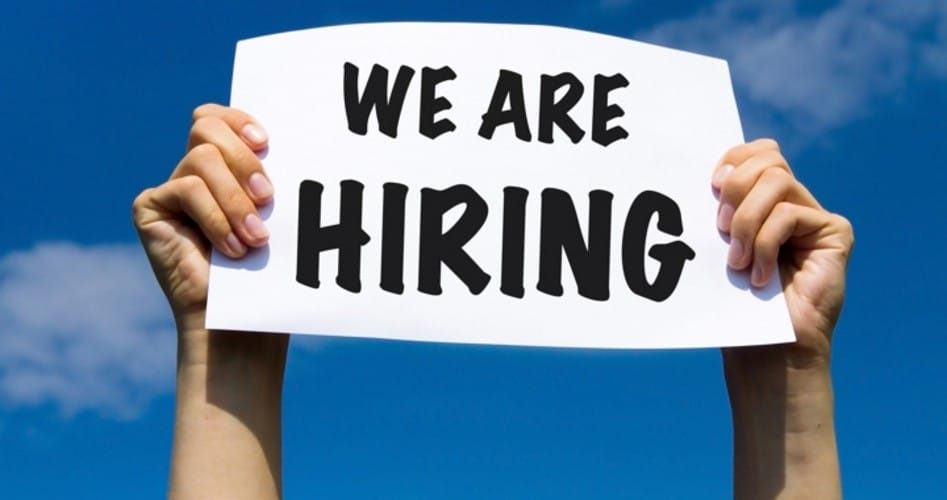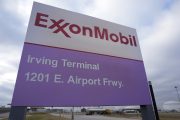
Following its monthly poll of economists, the Wall Street Journal reported on Thursday that many respondents believed “even a small boost to [the] federal minimum wage [currently $7.25 an hour] would cause some job loss.” And if the mandated wage was increased to $15 an hour, as some are demanding, job losses would be greater.
The results of the survey were published a day before the Department of Labor released its report on initial unemployment claims for the prior week: Those claims were “196,000, a decrease of 8,000 from the previous week … [and] the lowest level for initial claims since October 4, 1969 when [they were] 193,000.”
In addition, the four-week moving average of initial jobless claims fell to 207,000, “the lowest level for this average since December 6, 1969.”
Translation: Initial claims for unemployment insurance were the lowest seen since 1969, when the U.S. workforce was half the size that it is now. So as a percentage of the entire workforce, those claims are even lower, by half, than what the DOL reported. Conclusion: The U.S. economy is even healthier than is being reported.
This indicator is just one of many proving the remarkable strength of the U.S. economy as it continues its rebound from the Obama days. After reviewing a number of those indicators, Brian Wesbury, the chief economist for investment management firm First Trust Advisors, wrote his clients that the “economy [is] on very solid ground.”
But that ground was shaken last fall when the Federal Reserve, perceiving somehow that incipient inflation was a threat to the economy, raised rates for the fourth time that year and the ninth time since 2015. The stock market, correctly perceiving that higher interest rates would slow the economy, dropped nearly 20 percent before rebounding on news that the Fed wasn’t going to continue raising rates in 2019.
One way to slow the economy is to raise interest rates, i.e., make it more expensive for businesses to operate by raising their cost of capital. Another other way to slow the economy is to raise the cost of labor, as proposed by progressives seeking, as ThinkProgress.org expressed it, “to lift [people] out of poverty” by mandating a $15 an hour minimum wage.
The problem, which progressives aren’t willing to acknowledge is, that some employees’ labor isn’t worth that much to their employers. Some poistions don’t justify $15 an hour, for any number of reasons. So passing a federal law — or any law, state, federal or local, for that matter — would automatically put those people out of work.
But it goes much deeper than that. An employer isn’t seeking to add an employee who generates only as much revenue as he or she is being paid. Why would he? The only time he would hire someone is if he (or she) could count on that employee generating more revenue than what he or she is being paid.
A business owner seeks to grow his business, and the only way that can happen is by deploying his limited capital in ways that maximize its return to him. In addition, he knows that it’s easy to hire someone, but increasingly difficult to fire him. Also, there are the costs of the benefit package he is offering in addition to employee wages. And there are the increased administrative costs and management responsibilities inherent in bringing on a new worker.
In a healthy and free economy, a worker and his potential employer make an agreement, a contract, with each side ultimately being pleased with the terms. Otherwise there wouldn’t be such agreement or contract. Some workers will be glad to work for $7.25 an hour (it’s more than zero!) while others are willing to go to work for $10 an hour, proving their labor is worth it to their employer.
But let the federal government in where it doesn’t belong (see the U.S. Constitution for its specifically enumerated powers, which don’t include setting or commanding a minimum wage be paid to workers), and that freedom to contract disappears. Instead the employer applies his own internal financial and investment calculations to justify hiring someone at the new higher wage, and may discover that he doesn’t need, or cannot justify, that new employee. There is no contract, no agreement, and the business doesn’t grow as fast as it would otherwise, and the potential employee doesn’t get the job.
This is the part that is typically missing from the conversation about any minimum wage; federal, state or local.
What’s comforting is that a third of the respondents to the above-mentioned Journal poll got it right: They said there shouldn’t be a minimum wage at all. Left alone, both potential employees and employers will work out their own agreements according to each individual circumstance. To claim that the federal government can do that job better than individuals bargaining between themselves is preposterous.
An Ivy League graduate and former investment advisor, Bob is a regular contributor to The New American, writing primarily on economics and politics. He can be reached at [email protected].
Related article:
Latest Jobs Report Shows Economy at Cruising Altitude and Speed



